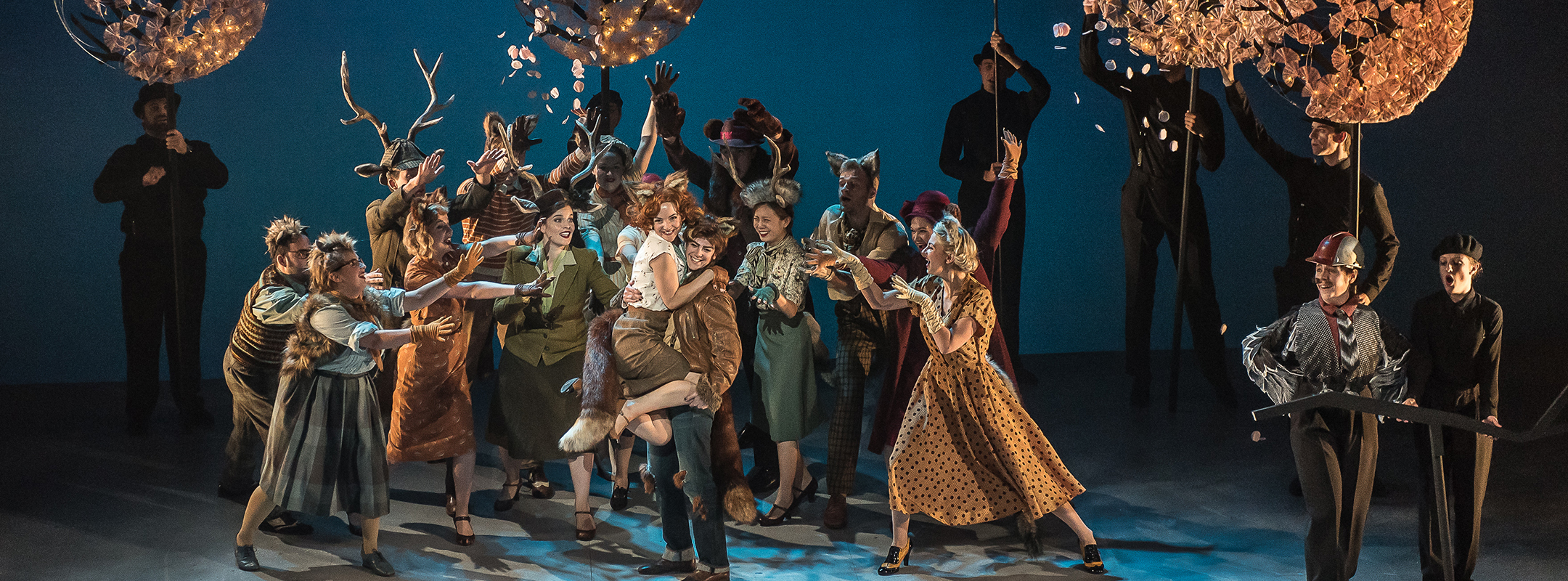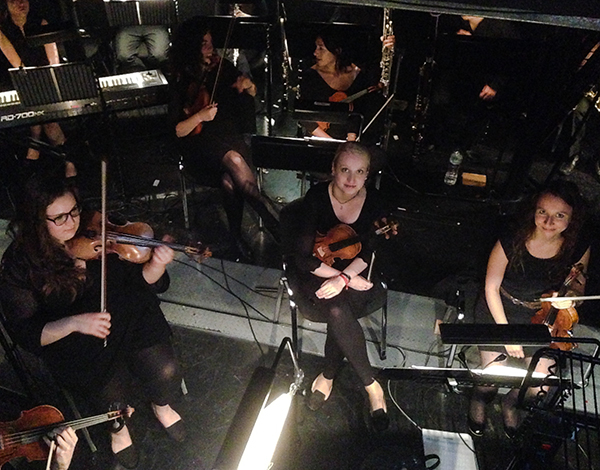
Violin
Having spent the last three weeks in the pit of London's Peacock Theatre with British Youth Opera, what's it like to perform an opera run?
The first time I had the score to The Cunning Little Vixen in my hands it was overwhelming - there were so many different motifs that switched so rapidly between each other. At the beginning I was focusing on every flat, every change of key and all the rhythms that jump around, but the joy of playing in an opera is that you have the time to go deeper in the music.
There’s an awful lot of music – the Janáček alone was 84 pages – but it’s good to have the occasion to play it multiple times, each time getting more familiar and more relaxed with it. Finally, when you’ve performed it several times you find yourself anticipating the music and sometimes realise you’re not actually reading the notes any more, instead just feeling the moment and being driven by that evening’s unique atmosphere.

Small space, big sound
The relationship you have with the music, and the sound you create as an orchestra, changes a lot over the course of rehearsals and performances. We rehearsed first at St John’s Waterloo, playing the music as though it’s a symphony or a concerto. But as soon as you arrive in the pit – a small, shallow box, half covered by a low roof – you realise you’re no longer the shiny instrumentalist who wants to play out because, first of all, you’re going to make your colleagues deaf! Secondly, you need to be able to hear what’s happening up on the stage.
The pit is a very intimate space, with musicians packed in. You can hear a lot of what’s immediately around you, but at the same time you can’t hear yourself when the winds or brass are playing forte. At other times, like in the Holst where there were two string quartets opposite each other, I couldn’t hear what was happening from the other side of the pit. You listen for as much as you can, but also find yourself looking at the movement of other string players and imagining their sound to keep the performance together.

The pit is a bit like an enclosure at the zoo. Before each performance, the audience would come and peer in as we were warming up. After this, the orchestra doesn’t really see the audience again so it feels very different to a normal concert. You hear clapping and laughter during the performance, and we react to that as it helps to support what we are doing, but as we’re out of the spotlight the atmosphere can be a little more relaxed, with more jokes within the orchestra. The chicken scene in Vixen? Well, we might have been doing a little acting there too.
One of the great things about leading the strings is that you’re right at the front of the pit so you can occasionally glimpse some faces on stage, otherwise you can’t put a face to a voice. The only other way we could see what was happening above us was through the shadows cast against the pit wall when the cast took their bows. We couldn’t see the staging, so we just had to use these shadow outlines of animals in the Janáček as fuel for our imaginations.
I really enjoyed performing these operas, particularly the Janáček as it’s such good music to play. I could have happily kept going into the pit each night. It’s a very different style of life, but I’m going to miss it!
Essential tips to survive the pit
Southbank Sinfonia’s works in partnership with British Youth Opera annually, bringing to the West End fully-staged productions featuring the finest young singers and musicians. The 2015 productions were Janáček Cunning Little Vixen, Vaughan Williams Riders to the Sea and Holst Savitri.
Find out more about Anaïs here